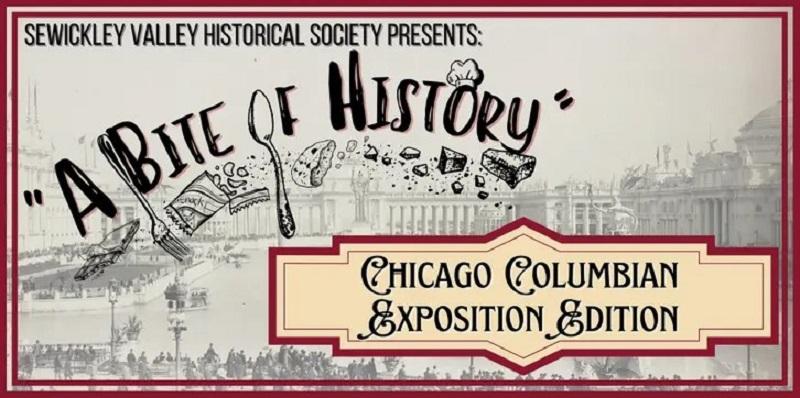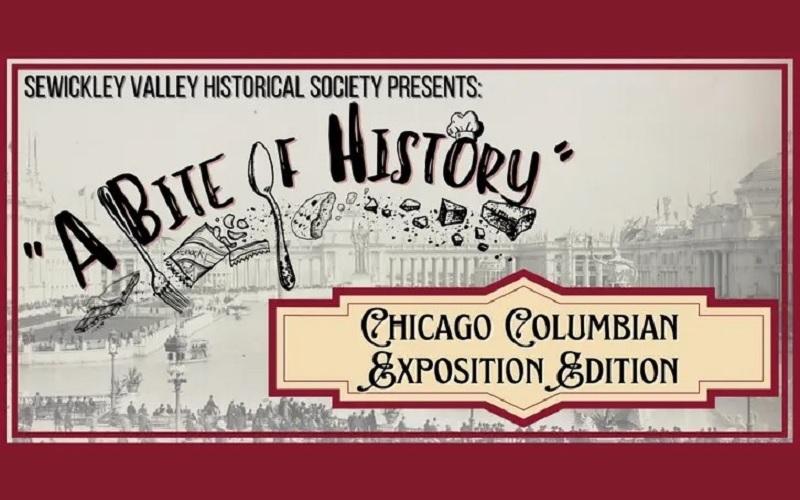The Sewickly Valley Historical Society (SVHS) in Sewickly, Pennsylvania, will host an evening of 1893 World’s Fair events on October 23, 2024. “A Bite of History: Chicago Columbian Exposition Edition” and a lecture on “From the Steel City to the White City” are part of their 2024–2025 Program Series.

The evening will start at 5:30 pm with SVHS Executive Director, Amanda Schaffer as she introduces the foods being offered and their history with the 1893 Fair and beyond. Attendees will then be able to assemble their own plates, enjoying the historic foods while exploring the Collections at SVHS and special 1893 Fair history posters on display for the evening. Following the pre-lecture “A Bite of History: Chicago Columbian Exposition Edition” will be a light dinner of 1893 affiliated food fares and delights. Since no fair is complete without some souvenirs to take home, guests will also receive a few special items to commemorate their time taking a bite out of the history of the 1893 World’s Columbian Exposition in Chicago.
Tickets for “A Bite of History” are $17.49 per person (the price the original $.50 ticket to the Fair would cost attendees today!) Advance registration and payment is required. Space is limited to 50 people. The event will be held at Old Sewickley Posting Office Building, 200 Broad St. in Sewickley.
At 7 pm, Zachary Brodt will speak on “From the Steel City to the White City.” Brodt, author of From the Steel City to the White City Western Pennsylvania and the World’s Columbian Exposition (University of Pittsburgh Press, 2023) will explore Western Pennsylvania’s representation at Chicago’s Columbian Exposition in 1893, the first major step in demonstrating that Pittsburgh was more than simply America’s crucible—it was also a region of developing culture and innovation. This talk will examine Western Pennsylvanian exhibits at the exposition, as well as the experiences of Pittsburghers visiting the fairgrounds. Zach will also discuss how the Columbian Exposition influenced Pittsburgh’s development at the turn of the 20th century.
This lecture is free and open to the public, but advance registration is preferred.

